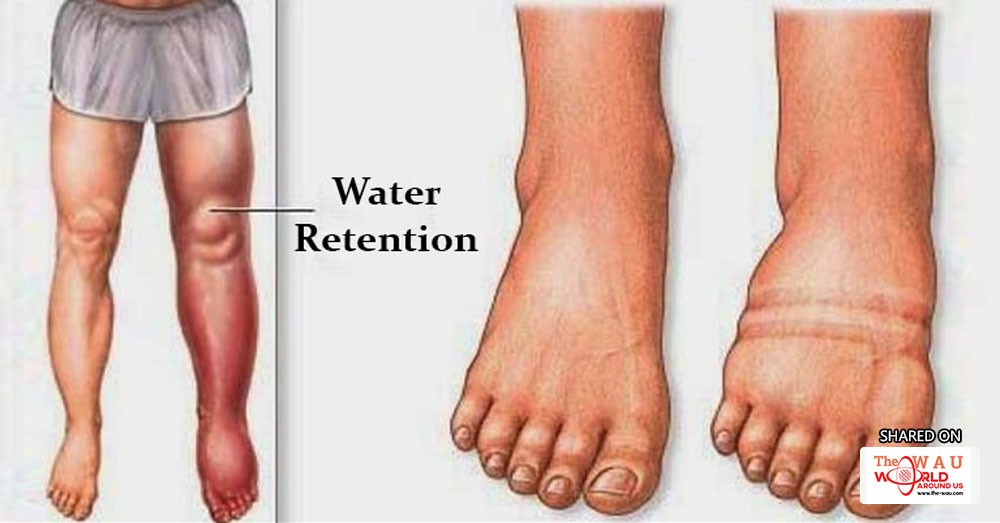Edema, or water retention, often causes swelling in the legs, feet, and hands. It is characterized by the accumulation of fluids in the tissues, cavities, and the circulatory system.
In most cases, edema is a result of pregnancy, the use of certain medications, premenstrual syndrome, physical inactivity, and sedentary lifestyle.
This condition is not serious, but sometimes, it can be a sign of heart failure or a kidney disease.
Here are the most common causes of water retention and ways to treat it:

Dehydration
The body retains water when it is dehydrated, and this leads to swellings in the body. Therefore, avoid soda drinks, and drinks rich in caffeine, and focus on water.
Magnesium Deficiency
Magnesium deficiency might also cause water retention. Research has shown that it in women with premenstrual symptoms can be reduced by a daily dose of 200 milligrams.
You should also consume more magnesium-rich foods like dried fruits, spinach, dark chocolate, nuts, whole grains, peas, dark green veggies, and avocados.
Excessive Sodium Intake
When one does not drink plenty f water and consumes lots of foods rich in sodium, the body starts accumulating water and this causes edema.
Therefore, you should avoid canned vegetables, processed meat, and condiments, as well as table salt. Instead, you should use Celtic and Himalayan sea salt.
Vitamin B6 deficiency
Water retention is often caused by vitamin B6 deficiency. One study published in the Journal of Caring Sciences involved women who experienced water retention as a symptom of the premenstrual syndrome. Their condition was improved after the intake of vitamin B6.
You will also optimize its levels by consuming more whole foods, dried fruits, chicken, bananas, turkey, tuna, sunflower seeds, pistachio nuts, potatoes with skin, and lean beef.
Potassium deficiency
Our body needs potassium as it regulates the water balance, and improves the function of tissues, body organs, and cells. Thus, its reduced levels in the body might lead to water retention.
To treat it, you should consume more potassium-rich foods, as they reduce sodium levels. These include honey melons, watermelons, and rock melons.
Excessive Consumption of Processed Foods
Processed foods are abundant in sugar and sodium, which lead to edema. They are also loaded with artificial food additives which are of toxic nature, and this overburdens the kidneys and the liver.
However, the following plants have powerful diuretic properties that will reduce water retention:
- Fennel
- Dandelion
- Parsley
- Garlic
- Hibiscus
- Horsetail
- Cornsilk
- Nettle
Share This Post















